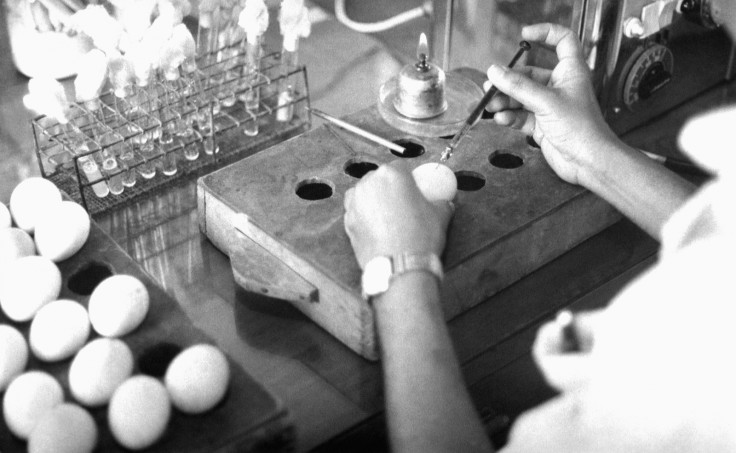80-year mystery of smallpox vaccine origin finally solved
The virus used to make the vaccine didn't come from cows after all.

For centuries, doctors used a virus of unknown origin in a vaccine to prevent and eventually eradicate smallpox. Now scientists say that they have found where the virus came from – not cows, as was historically thought, but horses.
The smallpox vaccine was the first developed in 1798 by the physician Edward Jenner. It was the first of its kind, and was remarkably effective. Smallpox was eradicated in 1980, thanks to vaccines like those developed by Jenner. Vaccines work by exposing the body to a modified or weakened strain of the virus, so the immune system recognises it and is primed for response if it encounters the real deal at a later date.
The earliest smallpox inoculations consisted of taking the pustule from a cow infected with cowpox – a closely related virus – and placing it under a person's skin. This conferred resistance to the disease in people. It is an oft-forgotten fact that sometimes pustules were taken from a horse infected with horsepox instead, which also seemed to work.
When scientists developed an understanding of what viruses were and how they worked in the 1930s, they assumed that the cowpox virus was the one in the vaccines they were using.
But scientists soon realised that the vaccines they were using didn't actually contain cowpox. They contained a virus with unknown origins, which they named vaccinia. Since then, the natural host that vaccinia comes from has remained a mystery.
Scientists have now tested one smallpox vaccine, dating from 1902, to identify the virus used. The vaccine was manufactured by H.K. Mulford Co. in Philadelphia in the US.
They analysed DNA from the vaccine, to find that it actually contained a horsepox virus, with the results published in a study in the New England Journal of Medicine.
"The results of our analysis of this 1902 smallpox vaccine provide evidence of the suspected role of horsepox in the origin of the smallpox vaccine, a role that was suspected even by Jenner himself. In fact, during the 19th century, inocula derived from cowpox or horsepox were used interchangeably to immunise against smallpox," the authors, led by Livia Schrick of the Robert Koch Institute in Germany, write in the paper.
"The identification of a link between 19th century and modern smallpox vaccines strengthens the hypothesis that the horsepox virus may be the ancestor of the vaccinia lineage."

© Copyright IBTimes 2025. All rights reserved.






















